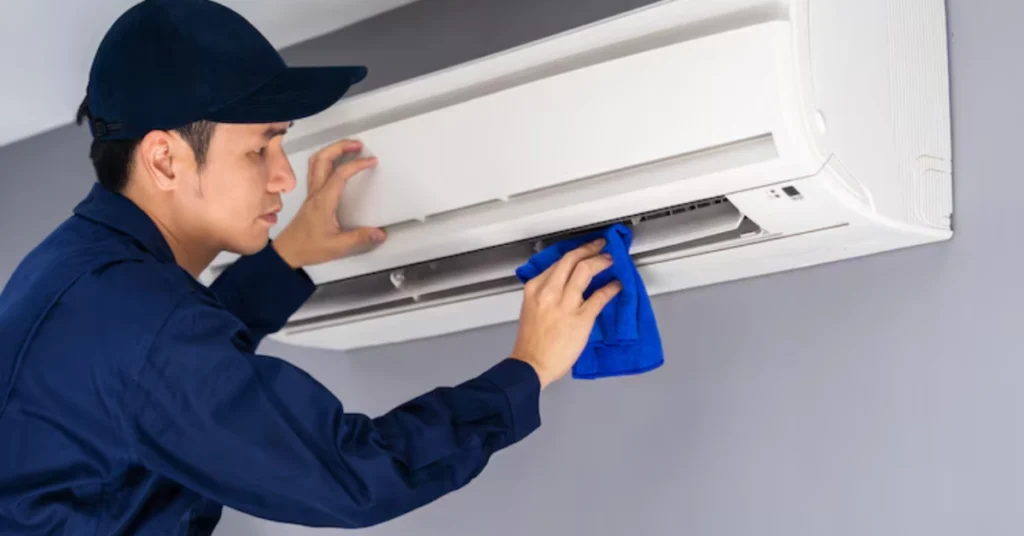Top 10 Most Common HVAC Issues and How to Avoid Them

The Heating, Ventilation, and Air Conditioning (HVAC) system is necessary for indoor comfort in homes and businesses. Yet, as with any mechanical system, HVAC units are susceptible to problems that can impact efficiency, raise energy bills, and create uncomfortable living or working conditions. Knowing the most prevalent HVAC issues and how to avoid them can save time, money, and effort in the long term.
Here, we discuss the top 10 most frequent HVAC issues and offer real-world solutions to avoid malfunctions and run your system at its best.
1. Clogged or Dirty Filters
The Issue:
Air filters catch dust, dirt, and allergens, providing clean air flow. When the filters get clogged, though, they constrict air flow, making the HVAC system work harder and less efficiently.
Prevention Tips:
Change filters 1 to 3 months depending on use and environmental conditions.
Use top-grade filters that are compatible with your HVAC system requirements.
Schedule regular maintenance to check and replace filters when necessary.
2.Thermostat Malfunctions
The Problem:
A malfunctioning or improperly programmed thermostat can cause erratic temperatures, wasted energy, or an HVAC system that refuses to start.
Prevention Tips:
Make sure the thermostat is properly set to heating or cooling mode according to requirements.
Replace with a programmable or smart thermostat for improved control and energy efficiency.
Change batteries periodically and ensure the device remains free from dust or debris.
3.Leaks of Refrigerant
The Issue:
Refrigerant is needed for cooling, and a leak may cause decreased efficiency, hot air blowing through vents, and high energy bills.
Prevention Advice:
Arrange frequent checks to examine for leaks or low refrigerant levels.
Should you experience diminished cooling efficiency, have a licensed HVAC technician look at the system right away.
Never try to recharge refrigerant yourself always have professionals handle it.
4.Wiring and Electrical Problems
The Problem:
Wiring malfunctions, loose wiring, or faulty capacitors can lead to system breakdowns, short cycling, or fire hazards.
Prevention Tips:
Have a competent technician check electrical connections every year.
All wiring should be securely tightened and insulated.
Do not attempt DIY electrical repair always call on an HVAC professional for repair and troubleshooting.
5.Frozen Evaporator Coils
The Problem:
Evaporator coils take heat from inside air, but they can ice up because of airflow obstructions or insufficient refrigerant, and this will lower cooling capacity.
Prevention Tips:
Make sure there is adequate airflow by leaving vents and air registers unobstructed.
Clean and change filters regularly.
Have an HVAC technician inspect refrigerant levels and clean coils each year.
6.Dirty or Clogged Condenser Coils
The Problem:
The outdoor condenser coil emits heat. As dirt and debris clog it, heat exchange is restricted, and the system overheats, running more harder.
Prevention Tips:
Remove dirt and debris like leaves, dust, and dirt from the outdoor unit.
Maintain a 2-foot area free around the outdoor unit for free ventilation.
Arrange to have professional coil cleaning at least annually.
7.Blower Motor Issues
The Problem:
The blower motor provides air circulation within the HVAC system. When it fails or functions poorly, airflow is compromised, causing inefficient heating or cooling.
Prevention Tips:
Regular lubrication of motor bearings to avoid wear and tear.
Monitor for unusual noise or weak airflow and contact a technician if needed.
Perform regular servicing to maintain motor efficiency.
8.Leaking Ductwork
The Problem:
Leaks in or improper insulation of ducts can result in high energy loss, inefficiency, and heating and cooling cost increases.
Prevention Tips:
Check ducts for open holes or damage and seal leaks using professional-strength duct tape or mastic sealant.
Install ducts to be well-insulated to avoid heat loss.
Schedule a professional HVAC checkup to detect hidden leaks.
9.Drainage Issues and Plugged Drain Lines
The Problem:
HVAC systems eliminate moisture through drain lines, but obstructions create water accumulation, which can result in leaks, mold growth, and water damage.
Prevention Tips:
Flush the drain line every few weeks using a solution of vinegar to avoid clogs.
Maintain the condensate drain pan clear of dirt and debris.
Call a technician at once if water is collecting on the floor near the indoor unit.
10.Short Cycling (Frequent On/Off Cycling)
The Problem:
If your HVAC system is cycled too much, it can lead to excessive wear and tear, decreased efficiency, and higher utility bills.
Prevention Tips:
Make sure your system is the right size an oversized unit could cycle too much.
Maintain filters and coils so there is proper airflow.
Have a technician check the thermostat and electrical parts for faults.
Conclusion
Preventing HVAC problems requires regular maintenance, timely repairs, and professional inspections. A well-maintained system operates efficiently, extends the lifespan of equipment, and reduces energy costs.
For expert HVAC maintenance, repairs, and installations, TRG Technical Services is your trusted partner. With experienced professionals, high-quality service, and a commitment to excellence, TRG Technical Services ensures your HVAC systems run smoothly year-round.
Visit https://trgtechnicalservice.com to learn more about how TRG Technical Services can help you maintain a reliable and energy-efficient HVAC system.


